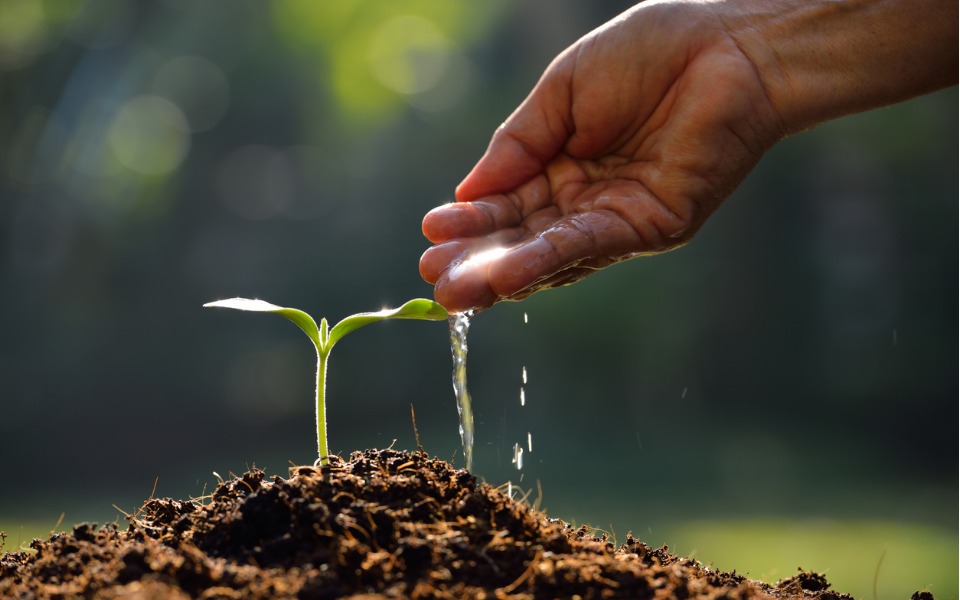
Plant trees for admission: Bihar school sets condition for students

A test or an interview are the usual requisites to get entry into a school in any corner of the country. But not in Bihar’s Hardeo Prasad high school. To enroll at this school located in West Champaran district, one must have green fingers. In other words, an aspiring student must plant a tree first and pledge to protect it.
With the onset of climate change and erratic weather conditions across the country, while the state government of Bihar is taking measures to conserve environment, the school in question has set an example for others by adopting this unique selection process to replenish greenery in the region, and sensitise the younger generation on environmental conservation.
Small idea, big change
The idea has resulted in an increase in the green cover of the areas and villages close to the school, with students scrambling to plant saplings to get admission there. Since the idea was launched in 2014, more than a thousand trees have been planted in the school campus and surrounding villages.
And the school administration does take its pre-admission criterion seriously. While applying for admission, a student has to submit a photograph of the sapling he or she has planted as proof to the school. The responsibility doesn’t end there. Once granted admission, a student has to take full care of the sapling until it develops into a tree.
Also read: Pune protests against destruction of green spaces in name of development
“The main objective behind this initiative is to conserve environment and lessen the impact of global warming,” said the school’s head teacher Pandit Bharat Upadhyay, also the brain behind the idea. “No plantation, no admission. This is the rule at this school,” asserted Upadhyay. The school imparts lessons to students from Class 9 to Class 12.
Upadhyay says the school decided to implement the idea, alarmed at the rampant felling of trees. “We made plantation a mandatory condition for admission, hoping that this would make the new generation aware about the importance of environment conservation. When a child plants a tree, he/she automatically involves his/her guardian in the process. In this way, the entire family and the society gets involved and sensitized about environmental conservation,” Upadhyay adds.
This academic session, a total of 238 trees, matching the number of admissions, have been planted near the school premises. While 185 trees were planted in 2018, the number was 191 in 2017, 169 in 2016, and 170 in 2015.
State initiatives
With the issue of fast changing climatic conditions becoming a matter of serious concern, the state government too has prepared a draft of the Action Plan to fight this situation. The government is taking appropriate measures to ensure that the existing tree-cover in the state is maintained, apart from efforts to plant more trees. Recently, the government didn’t allow the felling of trees from the Zoological Park in Patna, when civil aviation authorities wanted tall trees to be chopped as they were hindering flight operations at the Patna airport.
Secondly, the state has decided to implement the Bachat Lamp Yojana (BLY) of the Bureau of Energy Efficiency (BEE), in a move to save an estimated 170 MW by replacing around 64 lakh conventional bulbs in the state with compact fluorescent lamps (CFLs).
Also read: Felling of banyan trees prevented on highway thanks to people’s movement
The state government has also appealed citizens to take up intensive plantation drives across the state to increase the green cover to 17 per cent from existing 15 per cent. “This is the safest way to mitigate the challenge of global climate change,” chief minister Nitish Kumar had said, addressing a meeting of lawmakers earlier this month.
The chief minister also asked the legislators to apprise the masses about the critical situation triggered by global warming. “Global warming is responsible for high temperature, extreme weather conditions, erratic rainfalls, lightning and thunder, flood and drought, falling water table, drinking water crisis and air pollution,” the chief minister said.


